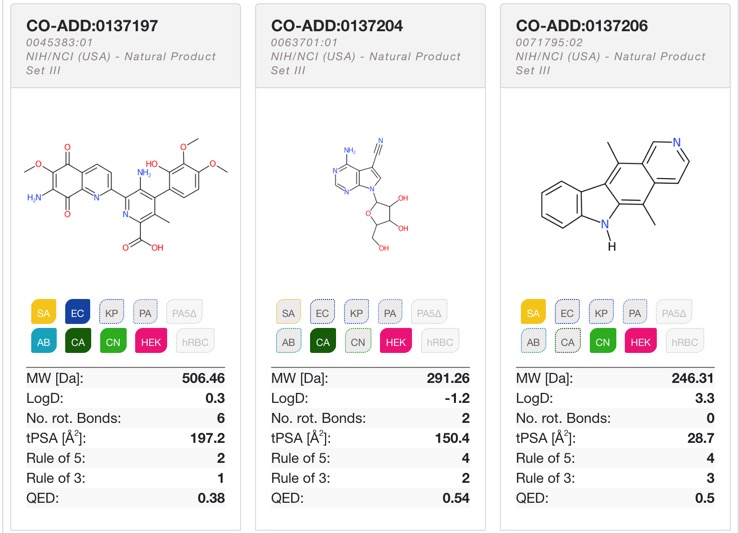MAIP: a web service for predicting blood‐stage malaria inhibitors
An interesting publication Bosc, N., Felix, E., Arcila, R. et al. MAIP: a web service for predicting blood‐stage malaria inhibitors. J Cheminform 13, 13 (2021). https://doi.org/10.1186/s13321-021-00487-2.
We describe the development of an open-source software platform for creating such models, a comprehensive evaluation of methods to create a single consensus model and a web platform called MAIP available at https://www.ebi.ac.uk/chembl/maip/. MAIP is freely available for the wider community to make large-scale predictions of potential malaria inhibiting compounds. This project also highlights some of the practical challenges in reproducing published computational methods and the opportunities that open-source software can offer to the community.
The code to standardise the compounds and train the models is available on GitHub:
standardiser: https://github.com/flatkinson/standardiser.
ModifiedNB: https://github.com/chembl/ModifiedNB.
mmv_train_image: https://github.com/chembl/mmv_train_image.
The ready to use Docker image to generate the models is available at https://hub.docker.com/r/chemblgroup/mmv_train. The MAIP platform is available at https://www.ebi.ac.uk/chembl/maip/.
Open-access Antimicrobial Screening Database
I just got news of the first public release of CO-ADD screening data
CO-ADD is a non-for-profit initiative led by academics at The University of Queensland. Our goal is to screen compound for antimicrobial activity for academic research groups and generate a public knowledge database for the development of novel agents for the treatment of microbial infections. The knowledge base contains chemical structures and antimicrobial activity data from CO-ADD’s screening, made publicly available by the academic research groups, with more data to be released over time.
The database is available here.

Gates Foundation insists on open access publishing
The Gates foundation's policy on open access publishing became enforced from Jan 1st 2017 and so all research from Gates funded projects can only by published in Open Access journals.
The details of the policy are available online
In particular
Publications Are Discoverable and Accessible Online. Publications will be deposited in a specified repository(s) with proper tagging of metadata.
Publication Will Be On “Open Access” Terms. All publications shall be published under the Creative Commons Attribution 4.0 Generic License (CC BY 4.0) or an equivalent license. This will permit all users of the publication to copy and redistribute the material in any medium or format and transform and build upon the material, including for any purpose (including commercial) without further permission or fees being required.
The NIH insists that publications must be made freely available 12 months after publication, Wellcome Trust, also mandates OA publishing, but its policy permits a six-month embargo on making published papers open. CRUK currently encourage, and where an article processing charge is paid, require, license research papers using the Creative Commons Attribution licence (CC-BY). The research councils in the UK have also committed to Open Access publishing as do DNDI.
With charitable funding playing an increasingly important role in drug discovery complying with these Open Access requirements is likely to have a significant impact on the publication landscape.
Wellcome Open Research
What is Wellcome Open Research?
- A platform for Wellcome-funded researchers to rapidly publish any research outputs they wish to share.
- Supports reproducibility and transparency.
- Uses an open research publishing model: immediate publication followed by open invited peer review.
- Includes all supporting data, enabling reanalysis, replication and reuse.